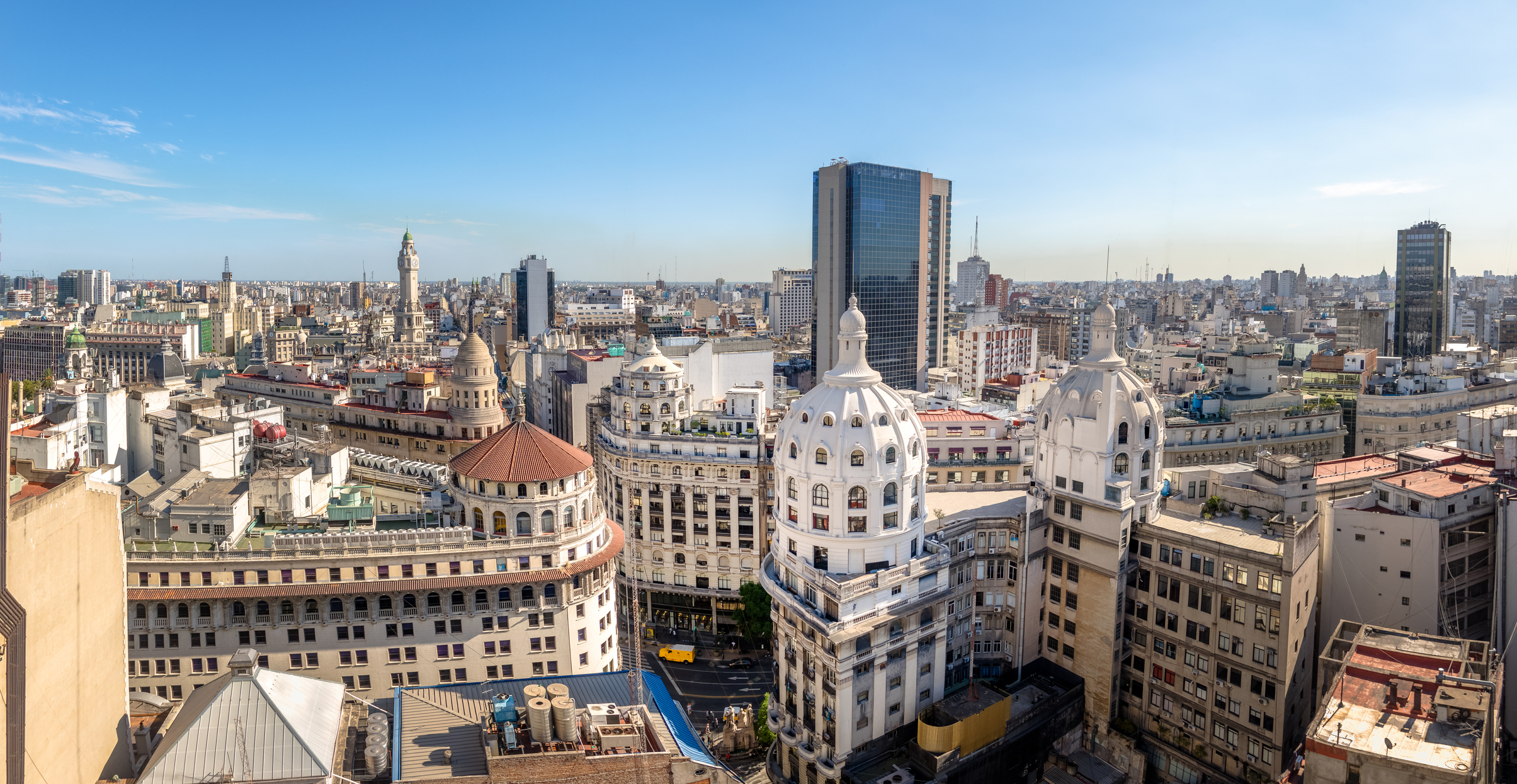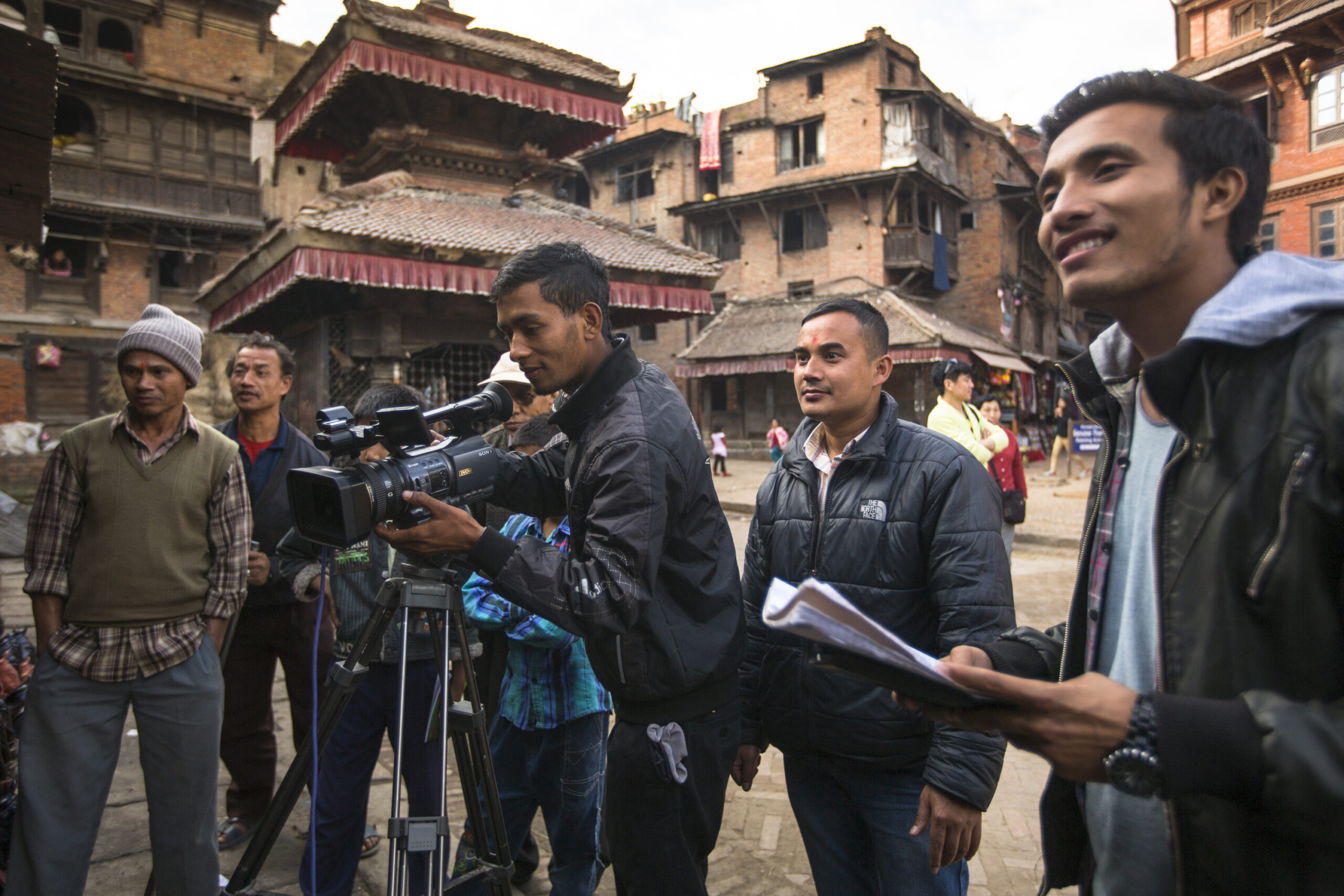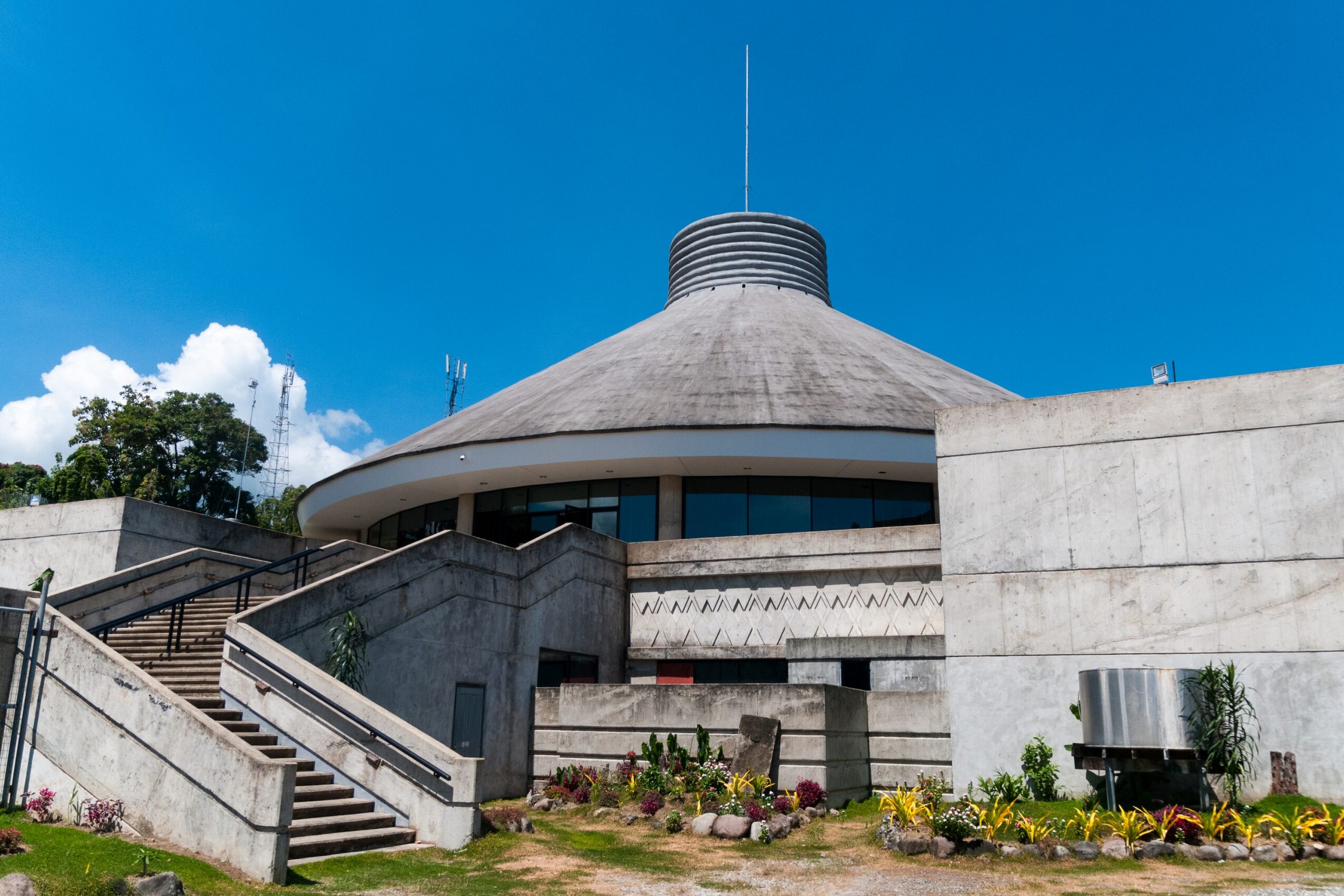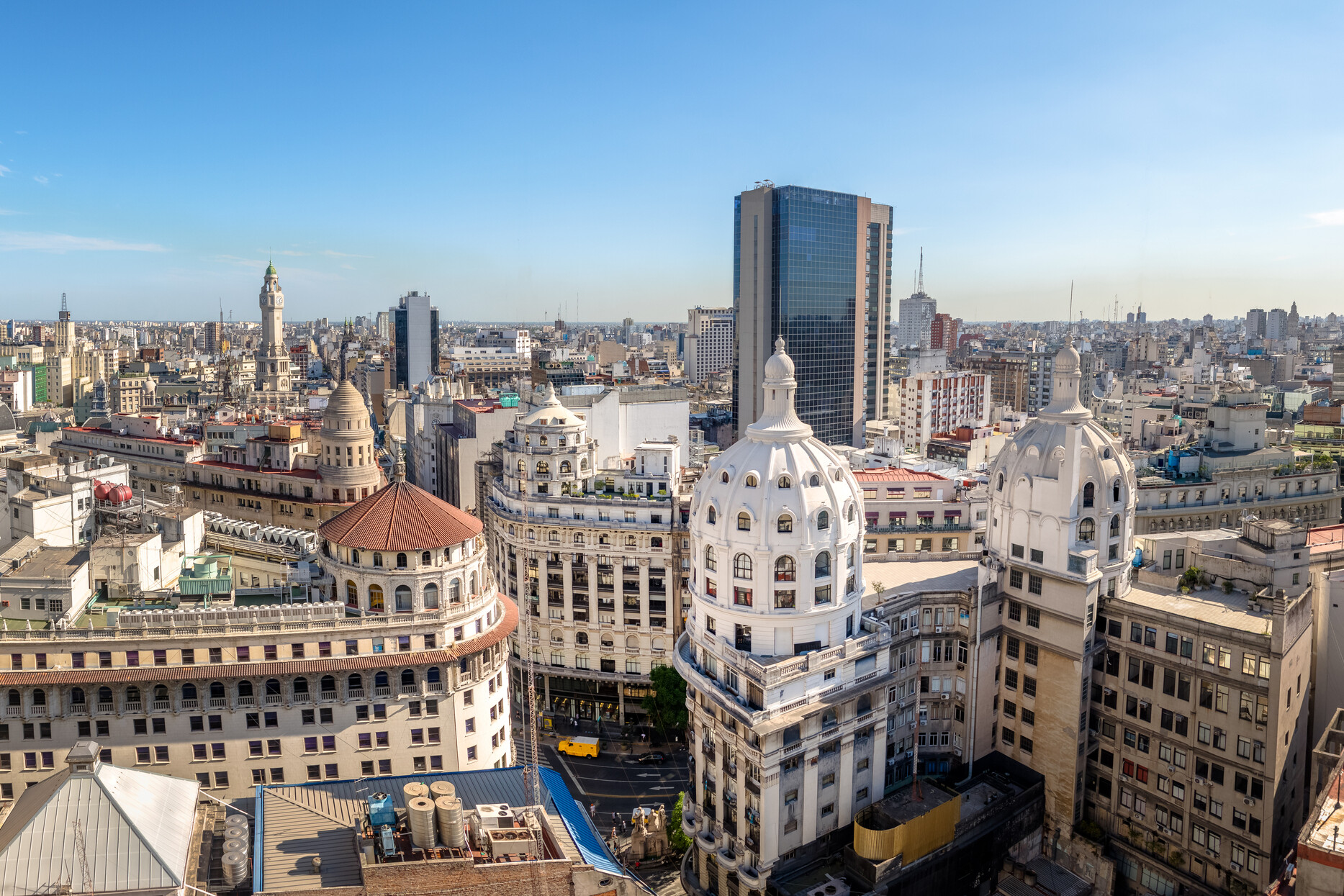The precarious future of public media in Argentina
6th November 2023
Amid elections in Argentina, the fate of public service media is precarious with one candidate proposing to remove the company entirely.

– By Charlotte Pion
Despite being one of Latin America’s largest media markets, Argentina is also one of the countries with the lowest levels of interest and trust in the media.
On 19 November, the country will go to vote in a run-off election, to decide the next President and Vice President. The vote is particularly significant for the country’s public service media, as Javier Milei, the representative for the new far-right party La Libertad Avanza (LLA), plans on dismantling public services.
Ahead of the first round of voting in October, Reporters Without Borders (RSF) published a set of recommendations to consolidate journalistic independence and media freedom, and urged the candidates to implement them in their programme to notably prevent further media concentration and ensure editorial autonomy within public media.
The current state of public media in Argentina
When it comes to public service media, Guillermo Mastrini, a researcher and mass media policies expert, told PMA that it has never really been considered as being truly public.
According to Mr. Mastrini, Argentinian public media is broadly seen as being state-owned and remains very close to the government. Whatever the political inclination of the government, the public media would follow its line, even at state level.
Despite known quality programming and the fact public media are more widely spread geographically than private media, there has been very low levels of trust among the population in services such as Televisión Pública and Radio Nacional. Additionally, audience reach appeared to be much lower than privately-owned media.
According to research conducted by the Reuters Institute for the Study of Journalism, the interest in media is rather low, especially in the aftermath of the Covid-19 pandemic.
“Javier Millei has explicitly proposed the elimination of public companies in the country, including the media”. – Guillermo Mastrini, researcher and mass media policies expert.
To compound the problem, the last two years have been particularly difficult for public media. They closed 2022 with a total loss approaching US$30 billion, and the threat of a restructure or even privatisation has hung over their heads ever since. In addition, the challenging working conditions in the media sphere, and the decline of staff since the firing of 350 journalists and media workers – representing 40% of the workforce – from the public media organisation Télam, has put public media in a precarious position.
Listen toour podcast
Uncovering and exploring the biggest
issues facing public media
What does the future look like?
There was general surprise in the first round of elections, as the Peronist (centre-left) candidate Sergio Massa, who is currently the Minister of Economy, made it to the run-off, despite his unfavourable reputation among Argentines due to his tenure during the financial crisis. Facing him, Javier Millei and his programme of radical change, with libertarian ideals and the promise to dollarize the country and eradicate public services.
This particular promise is what puts public media in a dangerous position. Mr. Mastrini told PMA that “Javier Millei has explicitly proposed the elimination of public companies in the country, including the media”. Arguing that public companies were an inefficient financial abyss, Javier Millei plans to “chainsaw” the public sector to stop the government’s spending and wastes.
Such a threat has been made before, and Mr. Mastrini said that “State-owned media have resisted throughout their history various attempts to privatise them, seeking the support of citizens, social organisations and unions.”
But in this case, the broader economic context of Argentina could work against public media. “At this time, they present greater weakness given that the prolonged economic crisis has led an important part of society to consider it necessary to reduce public spending. State media can only survive financially thanks to contributions from the state, which supports most of their budget.”
Read more: Censorship, harassment, and misinformation characterise Brazil’s 2022 election
The removal of public media would prove to be alarming for democracy in Argentina, and public organisations have already reacted to such a threat.
After a recent attempt from political leaders to reduce public media, the Federal Council of Public Television (CFTVP) – which gathers channels dependent on the government, the provinces and public universities – already sought to strengthen and develop policies to protect public media, as the proposal to reduce or get rid of public media threatened the democracy they built over the last 40 years.
In a statement reacting to these privatisation proposals, the Argentine Chamber of the Cinematographic Industry (CAIC) stated that “beyond ideologies and flags, public policies of promotion and public media, as well as quality education and health to which all the inhabitants of our country can have access, have been and are a bastion and example of our history as a modern nation. No conjunctural crisis in an electoral emergency such as the present one should call into question those values and achievements for which Argentina is respected in the world”.
The Peronist Sergio Massa presented a very different programme for public media than his political opponent. As Mr. Mastrini told PMA, the candidate of the Unión por la Patria expressed it was “necessary to maintain public companies, even though it is important to improve their efficiency”. In an interview that followed the first round of the elections, he called to empower public media, as “it means having federal coverage and the possibility for everyone to access good information”.
The survival of public media
Confronted with such a challenge, the public media sector reacted and got involved in the support of Sergio Massa. Together with independent and private media, more than 150 journalists and media workers gathered at the Buenos Aires Press Union’s (Sipreba) general assembly, to call the Peronist candidate to vote “in defence of democracy and labour rights”. During this assembly, they urged for the protection of values such as freedom of expression and union organisation and decided to condemn the statement against public media and the criminalisation of protest made by Javier Milei.
In addition to that, one of the recommendations made by RSF underlined the necessity of public service media’s financial and editorial independence, and the guarantee of free speech and the right to news and information.
The next few weeks will prove decisive for the fate of public media in Argentina, from their existence to the possibility of more independence from the government.
Related Posts
5th August 2022
PMA: Solomon Islands government must respect broadcaster’s independence
The government has ordered Solomon…
7th July 2021
Argentina: New law set to enhance gender equity in public media
A new media law to improve gender…




